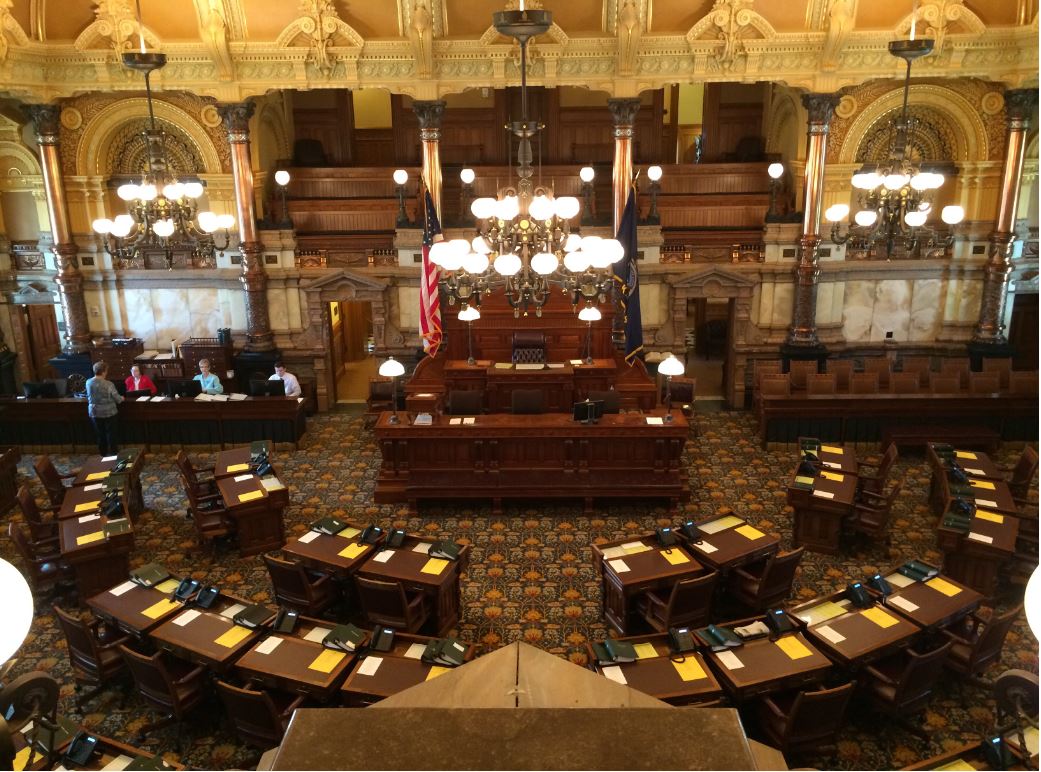
Updated on April 28, 2022
In May 2021, Kansas Governor Laura Kelly signed a package of bipartisan criminal justice legislation into law, which is designed to increase public safety and improve community supervision. Three additional bills were added to that package this month.
The policy changes are the result of Kansas’s Justice Reinvestment Initiative, which the state embarked on in 2020 with intensive technical support from experts at The Council of State Governments (CSG) Justice Center. Here’s what you need to know:
1. Why is this legislation needed?
COVID-19’s impact on Kansas’s justice system has temporarily lowered rates of incarceration and kept more people on supervision or otherwise held in the community. But communities are not equipped to handle the increased population, let alone reduce recidivism and increase public safety. As a result, Kansas is at a crossroads: either pursue cost-effective policies for a safer Kansas today or watch supervision failure rates lead to increases in spending on prisons tomorrow.
Three key challenges were identified in Kansas:
- More Kansans are being incarcerated for drug offenses, which drives up costs without improving outcomes. There was a 33 percent increase in sentences to prison for drug offenses over the past decade. Prison costs almost 10 times more than community corrections. However, research indicates that a prison sentence does not lead to lower rates of recidivism than probation.
- People who violate conditions of supervision make up a significant portion of those in prison. Two-thirds of prison admissions and one-third of the prison population in Kansas were due to supervision violations in 2019. The majority of these violations were condition violations. Of the people revoked from community corrections for condition violations, the most common violations, including the one they were revoked for, were for failures to report, abstain from drugs/alcohol, pay costs, and attend treatment.
- Using prison to sanction Kansans who violate conditions of their supervision is costly. It cost $43 million to incarcerate 1,630 people who violated supervision conditions in 2019. In comparison, it cost $22 million to supervise 8,284 people on community corrections that year—5 times the number of people for half the price.
2. What will the legislation do?
HB 2026, HB 2077, and HB 2121 were enacted in May 2021.
HB 2026 will expand existing drug treatment infrastructure to encourage more prosecutor diversions and provide certified treatment to more people before they are convicted of crimes.
HB 2077 extended the Kansas Criminal Justice Reform Commission (KCJRC) until December 2021. Related to community supervision, the Commission worked explicitly to
- Create standardized terms and conditions of supervision,
- Provide a means to consolidate concurrent supervision into one supervision agency,
- Establish standard effective responses to behavior for all community supervision programs, and
- Monitor implementation of policies to identify opportunities for coordination and collaboration.
HB 2121 requires the Kansas Department of Corrections to establish standards for parole behavior responses that follow evidence-based practices. This includes the use of incentives for compliant behavior and appropriate interventions for violations. This bill also explicitly defines what it means to abscond from supervision, which directly ties into a non-statutory administrative recommendation to develop an interagency re-engagement unit. This unit will target people who fail to report, are on absconder status, or are at risk of revocation to connect them to resources and successfully re-engage them in supervision.
In April 2022, HB 2361, HB 2515, and HB 2654 were also enacted.
HB 2361 requires the Kansas Supreme Court to adopt rules for the establishment and operation of specialty court programs within the state, creates a funding advisory committee for specialty courts, and allows for expungement after program completion. This bill was intended to give judges additional tools to respond to issues like substance use addiction, so that more courts statewide could help people on their path to recovery with options other than incarceration.
Kansas is one of a handful of states that requires people convicted of drug offenses to add their name to a public online registry, which impacts their ability to secure housing and employment as they attempt to be productive and self-sufficient. HB 2515, which passed as part of SB 366, allows people to petition to be removed from the registry after five years if they have been rehabilitated, which would remove an unnecessary barrier that currently prevents people from building the foundation for a stable life.
Community supervision in Kansas is overseen by three supervision entities. This trifurcated system creates a dynamic where a person with multiple court cases can be on supervision with one, two, or all three supervision entities simultaneously. HB 2654, which passed as part of SB 408, ensures that people on supervision are supervised by only one entity. This will promote success for people on supervision, eliminate duplicative services, prioritize supervision staff time for people most at risk of failure, and ensure a fiscally responsible use of taxpayer resources.
3. How was the legislation developed?
In January 2020, Kansas state leaders began using a Justice Reinvestment approach to address the state’s criminal justice system challenges with intensive technical assistance from the CSG Justice Center and support from the U.S. Department of Justice’s Office of Justice Programs, Bureau of Justice Assistance and The Pew Charitable Trusts.
The KCJRC, a bipartisan group of stakeholders from across the state’s criminal justice system, worked with CSG Justice Center staff to review analyses and develop policy options. These recommendations were then initially introduced to the legislature during the 2021 session. Some of these bills, in addition to new ones, were also considered in the 2022 session.
This project was supported by Grant No. 2019-ZB-BX-K002 awarded by the Bureau of Justice Assistance. The Bureau of Justice Assistance is a component of the Department of Justice’s Office of Justice Programs, which also includes the Bureau of Justice Statistics, the National Institute of Justice, the Office of Juvenile Justice and Delinquency Prevention, the Office for Victims of Crime, and the SMART Office. Points of view or opinions in this document are those of the author and do not necessarily represent the official position or policies of the U.S. Department of Justice.
About the Author


Arkansas policymakers have long expressed concerns about the state’s high recidivism rate. Over the past 10 years, an…
Read MoreIn April 2025, Arkansas Governor Sarah Huckabee Sanders signed a package of bipartisan criminal justice legislation into law,…
Read More Explainer: Key Findings and Options from Arkansas’s Justice Reinvestment Initiative
Explainer: Key Findings and Options from Arkansas’s Justice Reinvestment Initiative
Arkansas policymakers have long expressed concerns about the state’s high recidivism rate.…
Read More Explainer: How a New Law in Arkansas Tackles Crime, Recidivism, and Community Supervision Challenges
Explainer: How a New Law in Arkansas Tackles Crime, Recidivism, and Community Supervision Challenges
In April 2025, Arkansas Governor Sarah Huckabee Sanders signed a package of…
Read More









